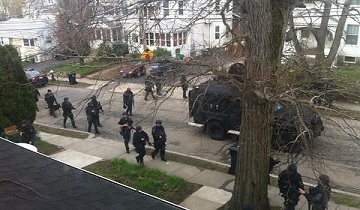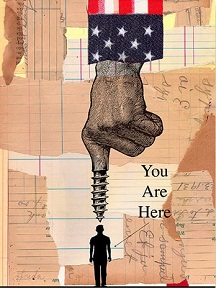The Boston lockdown and the Bill of Rights
The “exigent circumstances” exception more and more resembles the “state of exception” doctrine propounded by Nazi jurist Carl Schmitt, pursuant to which a “national emergency” may override all existing democratic legal protections.
With the implementation of a state of military siege against the population of Boston last week, the American ruling class has crossed a historical, legal and political Rubicon. The die is cast and the sun is setting on the democratic forms of rule that have existed in the United States for the past two centuries.
What history will remember as most significant about the events in Boston will not be the bombing near the marathon’s finish line or the perpetrators or their motives. What will be remembered instead will be the unprecedented military lockdown of an entire major American city, with military vehicles in the streets and heavily armed soldiers going house to house—tromping through living rooms, bedrooms and kitchens, staring down their assault rifles at terrified, barefoot families in their pajamas.
The Bill of Rights, ratified in 1791 in the wake of the American Revolution, has provided the basic framework for bourgeois democracy as it has developed in the United States over the past 200 years. A simple comparison of the words of the Bill of Rights with the recent events in Boston—the cradle of the American Revolution—underscores the advanced stage of the historical process that is shattering centuries-old democratic forms of rule.



























